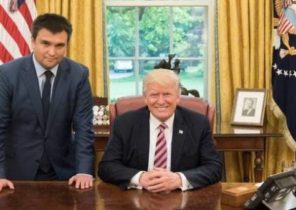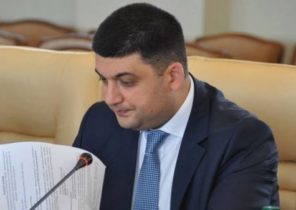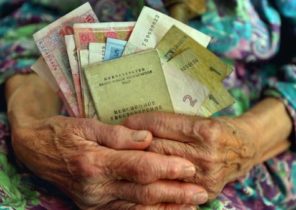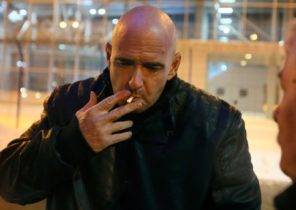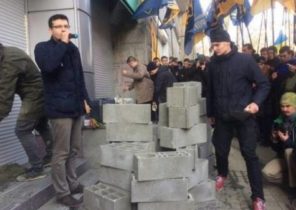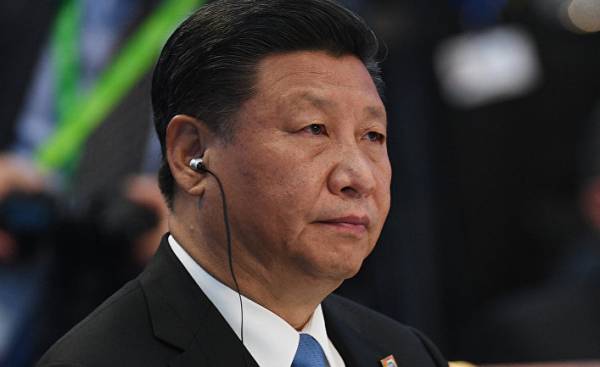
The elite of the Communist party of China has a long tradition to identify key policies and political appointments, while vacationing in Beidaihe, a resort town located on the Eastern coast of the country.
But XI Jinping can change the tradition this summer. Leisure will be the main agenda in Beidaihe, and political meetings will be given a secondary place. About The Epoch Times has learned from a variety of sources. In addition, older, retired party cadres are not welcome this year, unlike previous years, when their opinion was considered.
The new rules established in Beidaihe after several political and military actions of the XI in recent weeks. Apparently, he is continuing a campaign to eliminate rival political factions and consolidate power.
If si receives or to keep the momentum, leading to major political shifts at the XIX party Congress at the end of the year, he will almost certainly be able to form a standing Committee of the Politburo, the highest governing body, at its sole discretion.
Political resistance
Many observers believe that XI is the most powerful Chinese leader in recent years, because it has accumulated a big stack of credentials: the “main leader” and the “core” of the Communist party, the military commander, the head of several small but powerful commissions, and many others.
Credentials, however, are a weak indicator of the authority of the leader, given the political system in which mafia personal predilections and relationships allow former leaders to remain influential after retirement.
Former party boss Jiang Zemin (1989-2002), was made his successor Hu Jintao (2003-2012) simple nominal head, setting advanced, the Politburo standing Committee (nine members, in contrast to seven in the time of Jiang) and entering his henchmen. In overseas Chinese news outlet said that the orders of Hu very seldom got in the Zhongnanhai, the residence of the Chinese leadership in Beijing.
XI Jinping could expect the same fate, but in 2012, before XI took office, Wang Lijun, the right hand of ambitious Politburo member Bo Xilai, spoke about “the acute struggle for power” in the Chinese guide to American diplomats. Si hinted in their statements on the conspiracy of the coup and condemned Bo and a handful of other supporters of Jiang an attempt to “smash and break” party.
Despite the scandal of Bo Xilai, Jiang is still able to put his supporters in key positions in the governing bodies.
For example, three of the seven members of the Politburo standing Committee known as assistant Jiang. Prior to the beginning of this year, the most senior provincial officials were associated with the Jiang faction, which still affects the internal security apparatus, propaganda and the Ministry of foreign Affairs.
Analysts say that the resistance of the faction of Jiang was prevented by the leadership of si to carry out political, legal and economic-oriented policy reforms over the past five years.
However, the si succeeded in its campaign against corruption. Many of the more than 200 fixed high-ranking officials and generals were members and supporters of the faction of Jiang.
The desire for leadership
The weakening of the faction of Jiang and strengthen the power of the si was confirmed by the recent political and military actions of the si.
In the last week of July C sun was eliminated Janza, former Politburo member and supporter of Jiang, who was considered the successor of si. A few days later, si called an emergency two-day meeting with the major political and military leaders in a guarded Beijing hotel. Despite the secrecy of the meeting, the Taiwanese news site Up Media reported that XI promised to suppress external and internal “anti-party opposition” and “unstable factors… at any cost.”
The journalist is a veteran of Hong Kong, Tsang Shan in an interview with The Epoch Times said, “it is Possible that XI Jinping will take action against Zeng Cinchona or Jiang Zemin. Something should happen in the next two to three weeks.” Zeng quinghong was Vice President when Jiang and is his closest companion.
Another sign that Jiang is persona non grata, this is an unusual absence of all the party elders during the Grand military parade on July 30 at the training base of Juice in Inner Mongolia. To C is joined by only the main military leaders of leaders, and the troops on parade welcomed the C as “Chairman” instead of the usual treatment of “commander”. The President — higher title than commander.
Three scenarios
Based on the current state of Affairs in the Chinese leadership, it is possible to propose three scenarios of the formation of the Politburo standing Committee, which will be announced at the upcoming party Congress.
In the first scenario, all members of the standing Committee are either elected si or its allies. Wang Qishan, head of the Commission against corruption and the closest ally of the sea, will remain, despite the retirement age (an elite cadre retire at 68 years of age, Wanganui — 69). This permutation will show that si is in a dominant position, and the Jiang faction is practically ineffective at the highest echelons of power.
In the second scenario, the supporters of Jiang will receive one or two seats in the standing Committee. This will happen if the Jiang faction will be able to trigger a significant internal or external problem for the management of si before Congress. Then si can compromise with the Jiang faction, offering them a symbolic presence in the guide.
In a third scenario, si will reduce the number of members of the standing Committee from seven to five, where all members will be allies si or loyalists. This scenario assumes that the Jiang faction is on the verge of collapse, and C intends to transfer the mode from the model of collective leadership to the model, based on his personal authority.
Three possible composition of the Politburo standing Committee:
The first scenario is dominated by supporters of the si
XI Jinping, Chinese leader
Li Keqiang, Prime Minister of China, an ally si
Wang Qishan, head of the national oversight Commission, ally C
Li Zhanshu, head of the Chinese legislature, ally C
Wang Yang, head of the political consultative conference, an ally si
Wang Junin, head of the propaganda apparatus, ally C
Zhao Lazzi, Chinese Vice-Premier, the supporter si
The second scenario includes supporters of Jiang
XI Jinping, Chinese leader
Li Keqiang, Prime Minister of China, an ally si
Wang Qishan, head of the national oversight Commission, ally C
Li Zhanshu, head of the Chinese legislature, ally C
Wang Yang, head of the political consultative conference, an ally si
Wang Junin, head of the propaganda apparatus, ally C
Han Zheng, the Chinese Vice-Premier, member of the faction of Jiang
The third scenario: XI consolidates power in their hands
XI Jinping, Chinese leader
Li Keqiang, Prime Minister of China, an ally si
Wang Qishan, head of the national oversight Commission, ally C
Li Zhanshu, head of the Chinese legislature, ally C
Wang Yang, head of the political consultative conference, an ally si
